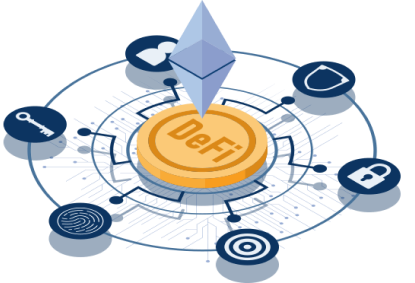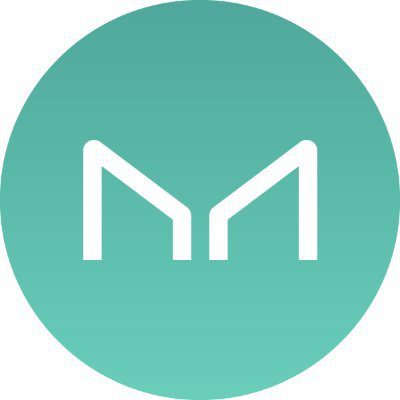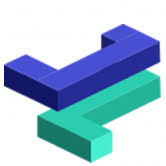Best DeFi Staking Platforms – If you’re looking to earn passive income from your cryptocurrency holdings, staking is a great way to do so. In recent years, decentralized finance (DeFi) has emerged as a popular alternative to traditional financial systems, and with it, DeFi staking platforms have become increasingly popular. In this article, we’ll take a look at some of the best DeFi staking platforms available today.

What is DeFi staking?
Before we dive into the best DeFi staking platforms, let’s first define what DeFi staking is. Staking involves locking up a certain amount of cryptocurrency in a wallet to support the operations of a blockchain network. In exchange for staking your tokens, you receive rewards in the form of more cryptocurrency.
DeFi staking, on the other hand, involves staking your cryptocurrency on a decentralized platform that offers staking services. These platforms use smart contracts to automate the staking process and distribute rewards to stakers.
Lets see the Popular DeFi Staking Platforms in 2022 and beyond
1. MakerDAO (MKR)

MakerDAO is one of several new decentralized finance (DeFi) cryptocurrencies. MakerDAO is also a component of the Maker protocol, a bigger system that employs a variety of crypto assets to run and maintain DAI without the involvement of a bank or government.
If DAI is saved on the platform, MKR holders can choose how much DAI holders earn. The DAI Savings Rate is the revenue that DAI holders receive as a result of doing this.
Blockchain: Ethereum
Total Value Locked: $7.83b
2. Lido (LDO)

The creative and commercial of staking services for Ethereum, a process that enables owners of the Ether cryptocurrency to generate passive revenue without having to sell their tokens, is now the DeFi,in platform Lido Finance.
In exchange for rewards, which are based in part on the number of new tokens created and fees collected, the staked coins are utilized to aid in transaction validation and network security.
Blockchain: Ethereum
Total Value Locked: $6.73b
3. Curve (CRV)

The Curve Finance governance token is called CRV. To convert CRV into veCRV, which is an internal token created for governance purposes and has the right to claim the cash flows produced by the protocol, a complicated time-based staking system was devised.
Curve Finance is an automated market maker protocol created for slippage- and fee-free switching between stablecoins. Anyone can add their assets to a number of different liquidity pools through this decentralized liquidity aggregator, earning fees in the process.
Blockchain: Ethereum
Total Value Locked: $5.48b
4. Uniswap (UNI)

In Uniswap Users can exchange ERC-tokens using Uniswap, which then pools the traded tokens into smart contracts. The majority of users then transact using the liquidity pools. Tokens can be added by individuals to a pool that generates fees. On Uniswap, you have the option to swap or list a token.
With Uniswap, liquidity staking is a special procedure that makes use of an automated liquidity protocol. You require ETH and an ERC-20 secure wallet in order to participate in Uniswap liquidity staking. by participating in Uniswap liquidity pools, you can exchange (swap) your ERC-20 tokens. There is no requirement for an order book or a centralized party because Uniswap is an Automated Liquidity Protocol.
Blockchain: Ethereum
Total Value Locked: $5.39b
5. AAVE (AAVE)
From a specialized network, Aave has grown to become one of the biggest Decentralized Finance (DeFi) systems available. Aave’s liquidity pools accept user deposits of Ethereum-based (ERC-20) tokens, Borrowers and lenders have the option of choosing a fixed or variable yearly percentage yield (APY).
Staking a cryptocurrency is very similar to making a deposit into a term or finance bond. You can benefit from the interest by allowing a blockchain or application to use your holdings.
Blockchain: Ethereum
Total Value Locked: $5.01b
6. Balancer (BAL)

On the Ethereum blockchain and other EVM compatible systems, Balancer is a community-driven protocol, automated portfolio manager, liquidity provider, and price sensor that enables decentralized trading and automated portfolio management of tokens.
Similar to Uniswap, Balancer operates by adding up to eight tokens to a single pool as opposed to Uniswap’s two. Additionally, it is not necessary for ETH to be one of the tokens in the pool, but ETH is coupled with all Uniswap currencies.
Blockchain: Ethereum
Total Value Locked: $1.47b
7. Convex Finance (CVX)

A creative DeFi system called Convex Finance (CVX) was developed on top of the Curve Finance stablecoin exchange. Fundamentally, Convex compensates CRV stakeholder and Curve liquidity providers with higher DeFi yields.
Convex Finance pools user CRV assets to buy more CRV, convert it to veCRV, and then distributes the most veCRV to all Curve LP token owners. To earn all of the CRV incentives, CVX Finance boosts the reward boost.
Blockchain: Ethereum
Total Value Locked: $3.95b
8. Just Lend (JST)

The very first official TRON lending platform where users may borrow, lend, deposit assets, and earn interest. An algorithm based on the supply and demand of TRON assets determines the interest rates for fund pools created using the JustLend money market protocol.
The depositor and borrower are the two roles that make up the protocol. To earn or pay the fluctuating interest rate, either of them can directly engage with the protocol.
Blockchain: Tron
Total Value Locked: $3.18b
9. PancakeSwap (CAKE)

PancakeSwap Farming has recently emerged as the most well-liked and fashionable yield farming project. On the Binance Smart Chain, it operates. Staking is not a resource-saving alternative to mining, despite what is commonly believed. In this method, money is kept in the cryptocurrency platform’s wallet. Additionally, it aids in maintaining the blockchain network.
Additionally, it helps a blockchain network function. The primary goals of using this are to generate rewards and promote the efficient operation of the blockchain network.
Blockchain: Binance Smart Chain
Total Value Locked: $2.9b
10. Yearn Finance (YFI)

Yearn.Finance is an open-source, Ethereum-based decentralized finance (DeFi) lending protocol. By automatically transferring user funds between DeFi lending protocols like Compound, DyDx, Curve, or Aave, it functions as a yield aggregating platform to maximize the user’s investment.
After the general public recognized the possibilities of staking crypto assets for a passive income, yield farming gained popularity. In the yEarn protocol, yield farming involves moving cryptocurrency assets in conjunction with the pursuit of a liquidity pool that offers the best APY week after week.
Blockchain: Ethereum
Total Value Locked: $492.8m
11. Compound (COMP)

Compound is a decentralized protocol that creates money markets with interest rates determined by algorithms based on supply and demand, enabling users to exchange the time value of Ethereum assets without any friction. Without having to discuss parameters like maturity, interest rate, or collateral with a peer or counterparty, suppliers and borrowers of an asset engage directly with the protocol while earning and paying a floating interest rate.
Blockchain: Ethereum
Total Value Locked: $2.36b
Other Top DeFi staking platforms
Here are some of the best DeFi staking platforms available today:
1. Celsius Network
Celsius Network is a DeFi platform that offers staking services for several cryptocurrencies, including Bitcoin, Ethereum, and Litecoin. The platform boasts competitive interest rates of up to 17.78% for some cryptocurrencies and allows users to stake their tokens for as little as one week.
2. Aave
Aave is a DeFi lending platform that also offers staking services. Users can stake their AAVE tokens to earn rewards and voting rights in the Aave governance system. The platform also offers rewards for staking other cryptocurrencies, including Ethereum, Bitcoin, and DAI.
3. Synthetix
Synthetix is a DeFi platform that allows users to create synthetic assets that track the price of real-world assets. The platform also offers staking services for its native SNX token. Users can stake their SNX tokens to earn rewards and participate in the platform’s governance system.
4. Uniswap
Uniswap is a popular decentralized exchange that also offers staking services. Users can stake their UNI tokens to earn rewards and voting rights in the Uniswap governance system. The platform also offers liquidity mining rewards for users who provide liquidity to the exchange.
5. Curve Finance
Curve Finance is a decentralized exchange that specializes in stablecoin trading. The platform also offers staking services for its native CRV token. Users can stake their CRV tokens to earn rewards and participate in the platform’s governance system.
How to choose the best DeFi staking platform
When choosing a DeFi staking platform, there are several factors to consider. Here are some things to keep in mind:
1. Supported cryptocurrencies
Make sure the platform supports the cryptocurrencies you want to stake.
2. Interest rates
Compare the interest rates offered by different platforms to find the best deal.
3. Staking requirements
Some platforms may require a minimum staking amount or a certain staking period. Make sure you understand the requirements before staking your tokens.
4. Security
Make sure the platform has strong security measures in place to protect your tokens.
5. Reputation
Do some research on the platform’s reputation to make sure it’s a legitimate and trustworthy platform.
Conclusion
DeFi staking platforms offer a great way to earn passive income from your cryptocurrency holdings. While there are several platforms to choose from, the ones listed above are some of the best in the industry. When choosing a platform, make sure to consider the factors mentioned above to find the best fit for your needs.
FAQs
1. Is staking safe?
Yes, staking can be safe as long as you use a reputable platform and take proper security precautions. Make sure to choose a platform that has strong security measures in place, such as multi-factor authentication and cold storage for user funds.
2. How much can I earn from staking?
The amount you can earn from staking varies depending on the platform and the cryptocurrency you stake. Some platforms offer higher interest rates than others, and some cryptocurrencies may have more volatile prices that affect your earnings.
3. Can I unstake my tokens at any time?
Most platforms allow you to unstake your tokens at any time, but some may require a minimum staking period or impose penalties for early withdrawal. Make sure to read the platform’s terms and conditions before staking your tokens.
4. What happens if the platform is hacked?
If the platform is hacked, there is a risk that your staked tokens could be stolen. However, reputable platforms typically have insurance or reserve funds in place to compensate users in the event of a hack or other security breach.
5. How do I get started with DeFi staking?
To get started with DeFi staking, you’ll need to choose a platform and transfer your tokens to a staking wallet on the platform. Make sure to follow the platform’s instructions carefully and take proper security precautions to protect your funds.